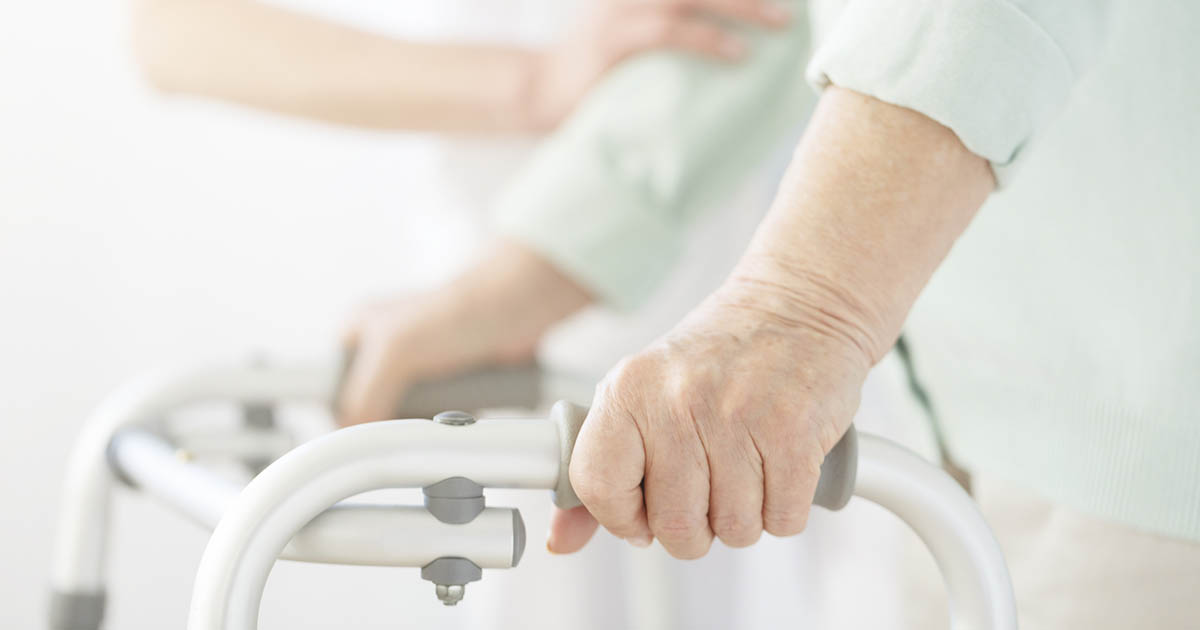Signs Of Hypothyroidism
The thyroid is a gland that produces metabolism-regulating hormones. If an individual has a thyroid that doesn't produce enough hormones to regulate how their body uses energy, they have hypothyroidism. Doctors sometimes test for thyroid disorders during routine check-ups, but often they rely on a patient sharing symptoms before conducting blood tests to diagnose it. Blood tests will be able to confirm whether a patient's levels of thyroid stimulating hormone (TSH) are within the healthy range or not. Since the thyroid affects the brain, heart, lungs, muscles, skin, menstrual cycles, and weight, early detection of deficiencies are very important. Anyone who experiences one or more of these common symptoms should ask their doctor about testing for hypothyroidism.
Weakness

Having an underactive thyroid means the body is not regulating energy well. If your body thinks it's not getting enough energy, it will begin breaking down muscle tissue to produce more. This process is called catabolism and will cause the muscles to continually degrade. This leads to muscle weakness and aches unrelated to any strenuous activity or illness. Sometimes this symptom can be quite uncomfortable and can cause shakiness almost as if the individual has low blood sugar. If thyroid deficiencies cause weakness, the feeling will not improve after eating. Feeling weak over a period of more than a few weeks or weakness that gets worse over time may be a sign of hypothyroidism. Once treatment begins, patients should be able to regain strength and build back lost muscle mass.
Fatigue

Hypothyroidism causes an energy imbalance, making patients feel fatigued. This exhaustion is unrelated to lack of sleep or working hard. Individuals with overactive thyroids (hyperthyroidism) will experience the opposite, and they will be jittery and hyper-alert instead. Extreme physical exhaustion is the most common symptom of hypothyroidism because of unregulated energy production. Individuals with low TSH levels may feel the urge to nap and might wake up tired after a full night's sleep. The thyroid affects so many processes in the body, so much so it is not surprising for patients with hypothyroidism to feel like they are slowing down in both body and brain. Fatigue could have many other explanations, such as disrupted sleep, stress, depression, and food allergies. If a patient can rule out common causes of fatigue, they may need to get their thyroid checked.
Difficulties With Weight

Many individuals struggle with weight gain due to an inactive lifestyle and poor diet. Patients with hypothyroidism may feel frustrated when diet and exercise do not stop or reverse weight gain. Difficulties with weight for patients with hypothyroidism is caused by a combination of poor metabolism and inactivity due to tiredness. Low metabolism causes the body to store calories as fat rather than burning them for the energy needed to support basic functions. Hypothyroidism can also cause an increase in appetite, furthering the problem. Individuals with hypothyroidism gain an average of fifteen to thirty pounds in a year. The good news is once treatment begins, most patients find it much easier to lose the weight, although the reversal will not be automatic. The first step to fighting thyroid related weight gain is to get treatment, and the second is to watch diet and begin an exercise regimen as soon as possible.
Dry Skin

One study showed every patient treated for hypothyroidism experienced some degree of dry, course, and irritated skin. An over-active thyroid can also cause an increase in sweating and other related skin diseases. Living in an arid environment or being constantly dehydrated will cause or compound dry skin, so patients should first make sure they are properly hydrated and use a moisturizer daily. If a patient's skin is not responding to moisturizers, it may be time to check the thyroid. It's imperative to take care of the skin, particularly when hypothyroidism is present. Use a gentle, hypoallergenic moisturizer; take shorter, cooler showers; and try using a humidifier in the bedroom overnight.
Pale Skin

Low levels of thyroid hormones inhibit blood circulation causing the skin to look pale and unhealthy. For the same reason, hypothyroidism patients are often cold, especially in their extremities. Individuals with chronically pale, waxy skin, and brittle fingernails should ask a doctor to test for thyroid disorders. Swollen, pale, and dehydrated skin caused by hypothyroidism, if left untreated for long periods, can cause mood disruptions, shortness of breath, memory loss, and in extreme case, a coma. Individuals with signs of poor circulation, including unusually pale skin, could be experiencing this symptom. Pale skin should subside fairly quickly with treatment.
Muscle Cramps

Among the more painful signs of hypothyroidism, having frequent muscle cramps can be a particularly bothersome symptom. A muscle cramp is an involuntary contraction of a muscle that can be sudden and range in severity. Cramps are usually a sign of dehydration, overexertion, or vitamin deficiency. If cramps are frequent and unexplained by other factors, they could be a symptom of hypothyroidism. Since an underactive thyroid causes poor circulation, the lack of blood flow to the muscles might cause chronic cramping. Muscle cramps will often be in the shoulders, arms, and thighs, sometimes affecting the range of movement. It is normal to have the occasional cramp, but if the symptom does not improve over time, patients should consider getting their thyroid checked.
